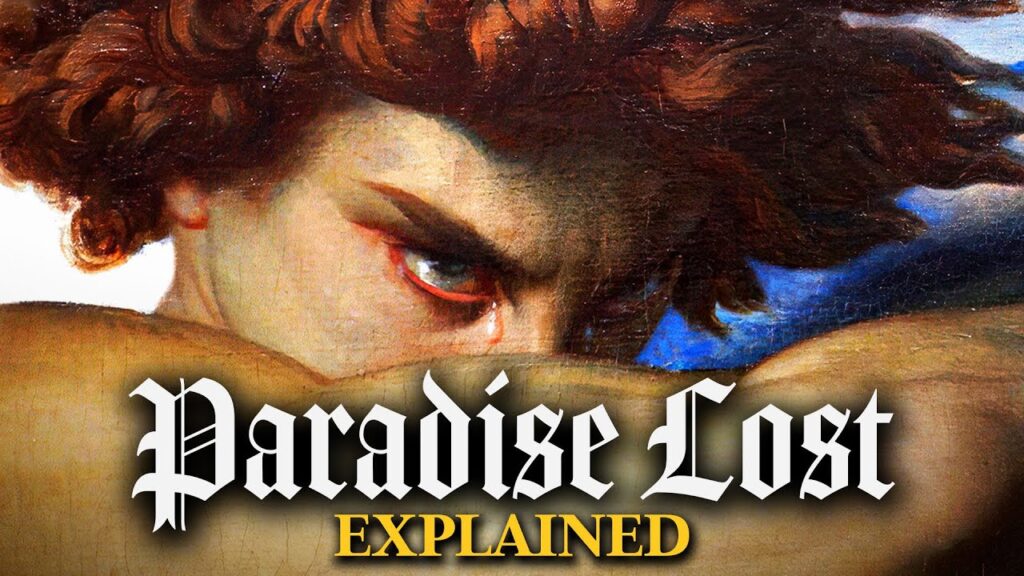“Paradise Lost is one of the books which the reader admires and lays down, and forgets to take up again,” Samuel Johnson wrote in the late eighteenth century. “None ever wished it longer than it is. Its perusal is a duty rather than a pleasure. We read Milton for instruction, retire harassed and overburdened, and look elsewhere for recreation; we desert our master, and seek for companions.” These nearly two and a half centuries later, how many of us attempt to seek out the instruction of Milton in the first place? What was a literary hit in 1667 has become a work read mostly by specialist scholars — but will, perhaps, become a favorite among viewers of the YouTube channel Hochelaga thanks to its new video above.
The first thing to know about Milton’s epic poem, says Hochelaga host Tommie Trelawny, is that it “tells the story of the Biblical fall of man — but, curiously, from Satan’s perspective.” Even if it’s never occurred to you to set eyes on Paradise Lost, you’ve almost certainly heard one of Satan’s most memorable declarations: “Better to reign in Hell, then serve in Heav’n.”
There’s a decent chance you’ve also run across another, “The mind is its own place, and in it self. Can make a Heav’n of Hell, a Hell of Heav’n,” perhaps without knowing which character speaks it. But if you hear enough of his quotable quotes, you might start to think that this Satan fellow makes some good points after all.
Paradise Lost had a similar effect on some of its God-fearing early readers, who suspiciously started to wonder whose side Milton was really on. What the poem seems to glorify, when read today, isn’t Satan, and it’s not even so much God or man as language itself. Now as then, Milton’s baroque grammar and heavily Latinate vocabulary constituted a good portion of both the work’s challenge and its appeal. Equally notable is his obvious conviction that language is up to the task of addressing the most fundamental truths, questions, and contradictions of existence. Satan may not emerge victorious — and certainly doesn’t at the end of the sequel, Paradise Regained — but if he happens to have the best lines, that just reflects our greater, and thoroughly human, fascination with the bad guys more than the good ones.
Related Content:
William Blake’s Hallucinatory Illustrations of John Milton’s Paradise Lost
Spenser and Milton (Free Course)
A Survival Guide to the Biblical Apocalypse
Did the Tower of Babel Actually Exist?: A Look at the Archaeological Evidence
Based in Seoul, Colin Marshall writes and broadcasts on cities, language, and culture. His projects include the Substack newsletter Books on Cities and the book The Stateless City: a Walk through 21st-Century Los Angeles. Follow him on the social network formerly known as Twitter at @colinmarshall.








